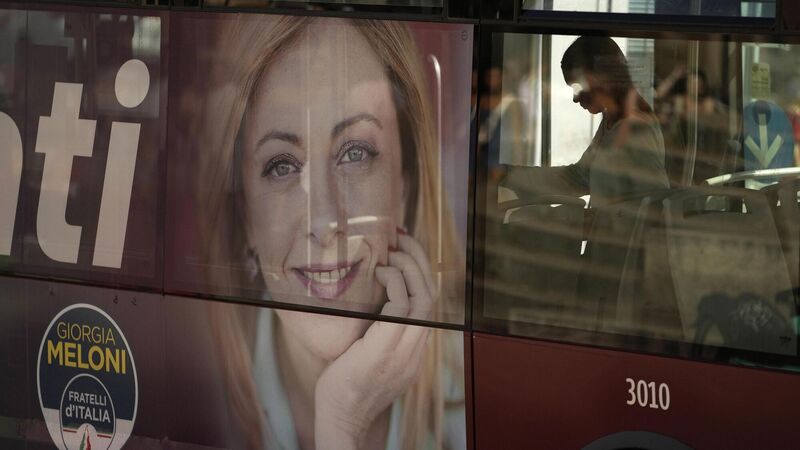Prospect of far-right female premier divides Italian women

A poster of Italy's candidate premier Giorgia Meloni stands on the side of a bus in Rome. If opinion polls prove on the mark, Giorgia Meloni and the far-right Brothers of Italy party she co-founded less than a decade ago will triumph in the September 25 elections for parliament. Picture: Alessandra Tarantino/AP
Italy could be on the verge of electing its first woman premier — a prospect that delights some Italian women, but dismays others.
Should opinion polls prove accurate, Giorgia Meloni and the far-right Brothers of Italy party she co-founded less than a decade ago will triumph in the September 25 election.













